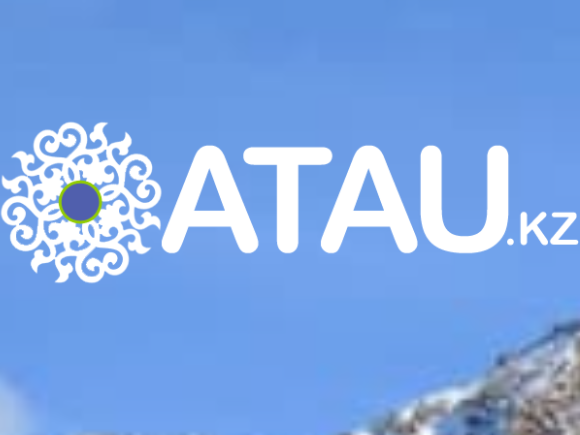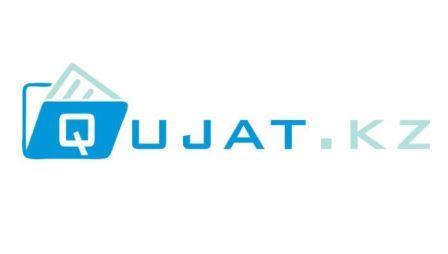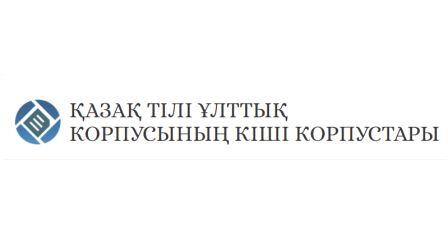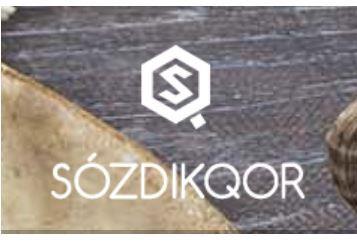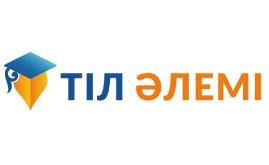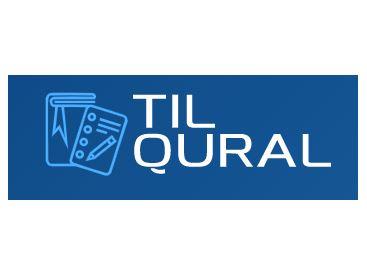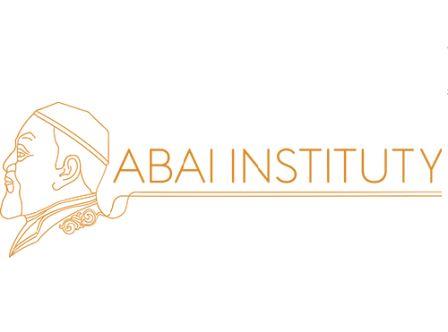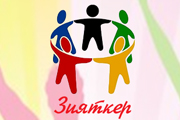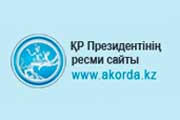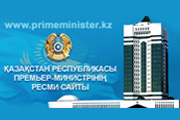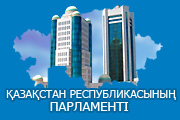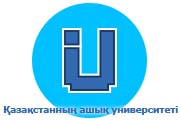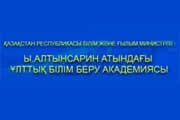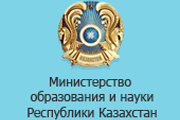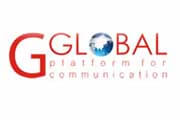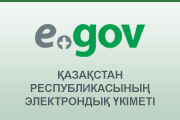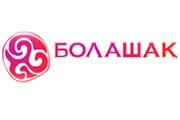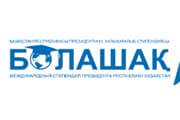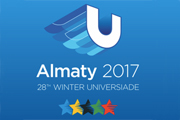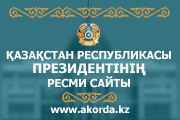Department of Geography
Educational programs
MINISTRY OF EDUCATION AND SCIENCE of the
REPUBLIC OF KAZAKHSTAN
South Kazakhstan State Pedagogical University

EDUCATIONAL PROGRAM
6B01511 «Ttraining of teachers of Geography-History
Code and classification of education: 6B01 Pedagogical sciences
Code and classification of training areas: 6В015 "Teacher training in scientific subjects»
Awarded academic degree: Bachelor of Education in the educational program 6B01511 «Ttraining of teachers of Geography-History»
type of program: Bachelor, 6 level NRK / ORC / MMSE
Total credits: 240 Academic credits / 240 ECTS
Shymkent
Agreed:
|
Vice-rector for educational and methodical work |
_________________ |
Isabek B.K. |
|
|
|
|
|
Head of the Academic Affairs Department |
_________________ |
Berdaliev D.T. |
|
|
|
|
|
|
|
|
|
Dean of the Faculty of natural science |
_________________ |
Saulembaev A.T. |
|
|
|
|
|
|
|
|
|
Director of the methodological center of Shymkent |
_________________ |
Medetbekova M. A. |
|
|
|
|
|
Methodologist in the geography of the methodical center of Shymkent |
_________________ |
Aulbaeva R.U. |
|
|
|
|
|
Methodologist on the history of the methodological center of the city of Shymkent |
_________________ |
Ibraeva R. S. |
|
|
|
|
|
|
|
|
|
Director IPCPBS branch of JSC "CRK "Orleu» Turkestan region and Shymkent |
_________________ |
Iskakova L.T. |
|
|
|
|
|
|
|
|
|
Director of the NIS of physics and mathematics directions of Shymkent city |
_________________ |
Abdrakhmanovа K.I.
|
|
|
|
|
|
|
|
|
|
Director of the boarding school No. 1 for boys "Bilim-innovation" Shymkent |
_________________ |
Usipbekov A. P.
|
|
|
|
|
|
|
|
|
|
Director of the school-lyceum № 23 named after Z.Kosmodemyanskaya |
_________________ |
Toilybayeva Zh.D.
|
|
|
|
|
|
|
|
|
|
Director of school-lyceum № 7 named after K.Satpaev |
_________________ |
Almahankyzy R.
|
|
|
|
|
|
|
|
|
|
Director of a comprehensive secondary school № 33 named after Kasymuly |
_________________ |
Ashirbekova D.A.
|
The Working Group on the development of the educational program:
|
№ |
Full name |
Position |
Contact phone |
|
1 |
Tazhekova Akmaral Dzhaksybekovna |
PhD, associate Professor, head of the Geography Department SKSPU |
+77752099686 |
|
2 |
Altynbay Tagabayevich Saulembayev |
PhD, Senior Lecturer, Dean of the Faculty of Natural Sciences of SKSPU |
+77473593594
|
|
3 |
Sakhova Kamila Kalmurzaevna |
moderator teacher of geography Nazarbayev Intellectual school of physics and mathematics |
+77055743473 |
|
4 |
Zhamelov Baglan Altayevich |
moderator teacher of history Nazarbayev Intellectual school of physics and mathematics |
+77024582777
|
|
5 |
Matekova Bakhtygul Temirkhankyzy |
coach of the subject history, senior lecturer of the department "Methods of teaching natural and humanitarian disciplines", FAO "NCPC" Orleu " IPK PR in Turkestan region and Shymkent |
+77757352107 |
|
6 |
Baibak Bibikhan Ongarovna |
coach of the subject geography, senior lecturer of the department "Methods of teaching natural and humanitarian disciplines", FAO "NCPC" Orleu " IPK PR in Turkestan region and Shymkent |
+77754820374 |
|
7 |
Sakenova Marzhan Myrzabekovna |
history teacher, teacher-researcher of the boarding school No. 1 for boys "Bilim-innovation" |
+77711520990 |
|
8 |
Usypbaeva Yerkezhan Nurzhanovna |
geography teacher, teacher-researcher of the boarding school No. 1 for boys "Bilim-innovation" |
+77054365946 |
|
9 |
Mahanova Lyazzat Atabekovna |
geography teacher, lyceum school No. 23 named after Z.Kosmodemyanskaya |
+77026030439 |
|
10 |
Zulfibekova Aisha Miraidarovna |
geography teacher, Secondary School No. 33 named after K. Kasymuly |
+77023361728 |
|
11 |
Zhapisheva Elmira Kaliyarovna |
Geography teacher of the Lyceum School No. 7 named after K. Spatayev |
+77757608297 |
|
12 |
Darkhonova Dono Oybekkizi |
2nd year student ЕP 6B01511-Training of a Geography-History teacher |
+77084184828 |
|
13 |
Momynkul Nuray Maratkyzy |
3rd year student of the specialty 5B012900-Geography-history |
+77005793105 |
Experts
|
№ |
Full name |
Position |
Contact phone |
|
1 |
Tasbolat Baibolat |
Doctor of Geographical Sciences, SKU named after M. Auyezov |
baigeo-55@mail.ru 87077201305 |
|
2 |
Yerzhan Farkhatovich Abdukhaimov |
Candidate of Historical Sciences, Academician SKU named after M. Auyezov |
87013098070 erzhanzortobe@mail.ru |
Abbreviations:
|
NQF - |
National Qualifications Framework |
|
IQF - |
Industry Qualifications Framework |
|
ISCE - |
International Standard Classification of Education |
|
EP - |
Educational Program |
|
WC - |
Working curriculum |
|
CED - |
Catalogue of elective disciplines |
|
KC - |
Key competencies |
|
LO - |
Learning Outcomes |
|
ICT - |
Information and communication technologies |
|
IC - |
Interim control |
|
CC – |
Current control |
|
FG - |
The final grade |
|
GED - |
General educational disciplines |
|
BD - |
Basic disciplines |
|
SD - |
Specialized disciplines |
|
LOM- |
learning outcomes of the module |
CONTENT
|
INTRODUCTION ...…………………………………………….................................... |
6 |
|
|
|
|
1 Passport educational program .................................... .................................................. |
7 |
|
1.1 Scope of professional activity of graduates .................................................................. |
7 |
|
1.2 Objects of professional work of the graduate .................. ............................................ |
7 |
|
1.3 Types of professional activity of graduates ..................... ............................................ |
7 |
|
1.4 Objectives of professional activity of graduates ................. .......................................... |
7 |
|
|
|
|
2 Features of the educational program .............................. ......................................... ... |
8 |
|
|
|
|
3 The purpose and values of the educational program .................................................. |
8 |
|
3.1 The purpose and objectives of the educational program ............ .............. .................. |
8 |
|
3.2 The values of the educational program ............... ................ .................................... ... |
8 |
|
|
|
|
4 Model graduate competence ………………………………....................…….............. |
9 |
|
5 Expected learning outcomes of an educational program ........................................... |
9 |
|
6 Educational achievements assessment Policy …………………………..............….... |
10 |
|
|
|
|
7 Methods and techniques for the implementation of the organization of educational process ............................................................................................................................... |
11 |
|
|
|
|
8 The contents of the educational program ……………………......................……....... |
14 |
|
8.1 and the learning outcomes of an educational program formed competencies................ |
14 |
|
8.2 Information on the module ............................................................ ................. ............. |
15 |
|
8.3 Information about the disciplines ...................................................... ................. .......... |
23 |
|
8.4 Working curriculum of the educational program ............................................. ............. |
37 |
INTRODUCTION
This educational program (hereinafter - EP) is a normative document of a conceptual nature, based on the goals and values of university education, containing general information about the professional activities of graduates, aims and objectives of EP of competence graduate model, the expected learning outcomes and policies of their evaluation of methods and methods of organization of educational process on the content of the program.
The main directions of EP:
- implementation of the educational policy of the University;
- the introduction of the trilingual education through the organization of educational process in the Kazakh, Russian and English languages;
- improving the quality of the learning process on the basis of competence approach;
- the willingness of students to educate themselves throughout their lives;
- formation of the outlook of students, develop their creativity, communication, critical thinking, research and information capabilities.
EP is the basis for the development of the following documents:
- Catalogue of elective disciplines (CED);
- Academic calendar of the educational process;
- Individualized Education Plan (IEP);
- working curricula (WC);
- Working program of educational disciplines (Syllabus);
- educational complex disciplines (ECD);
- the expected results in the disciplines of learning;
- criteria for assessing the disciplines of learning outcomes;
- documents on the organization of all types of professional practice, as well as other documents necessary for the educational process.
1 SHEET OF THE EDUCATIONAL PROGRAM
1.1 Scope of professional activity of graduates
Bachelor of EP 6B01511 «Ttraining of teachers of geography- history carries out his professional activities in the field of education.
1.2 The objects of professional activity of graduates:
- basic and specialized schools;
- specialized schools;
- the organization of technical and vocational post-secondary education.
1.3 Types of professional activity of graduates:
- training;
- bringing up;
- methodical;
- research;
- social and communicative.
1.4 Objectives of professional activity of graduates
Educational:
- training and development of students;
- the organization of educational process in professional activities;
- design and management of the pedagogical process;
- diagnosis, correction and prediction of the results of educational activities.
Nurturing:
- the involvement of students in the system of social values;
- implementation of educational work in accordance with the laws, the laws, the principles of the educational process, educational mechanisms;
- planning extracurricular educational work;
- addressing specific educational objectives;
- the use of various forms and methods of training and education of students in extracurricular activities;
- establishment of links with groups of students, subject teachers and parents.
Guidelines:
- implementation of methodological support of the educational process;
- planning the content of education at different levels;
- identification of methods for the organization and implementation of the educational process;
- the use of new educational technologies in the learning process.
research:
- study the level of mastering the content of education, the study of the educational environment;
- study of scientific and methodical literature;
- analysis and generalization of the advanced pedagogical experience in the field of education;
- conducting of pedagogical experiment, the introduction of its results in the educational process.
Social and communicative:
- the implementation of cooperation with the professional community and all interested education stakeholders;
- the formation of a multicultural identity;
- creation of favorable conditions for education and development of students, providing them with educational support.
2 SOFTWARE FEATURES OF EDUCATIONAL
EP higher education 6B01511 «Ttraining of teachers of geography-history designed in accordance with the European Qualifications Framework, National Qualifications Framework, the Dublin descriptors, Industry frame of qualifications, professional teacher standards to meet the requirements of the regional labor market and employers.
EP determines goals, expected results, conditions and techniques of the educational process, the realization of quality assessment preparation graduate in this area, the contents of the working curriculum.
EP features:
Presentation of the graduate's competence model based on the competence approach based on the modern educational paradigm. The competence model corresponds to three main goals defined in accordance with the goal of the Strategic development plan and the University's mission. Based on the results of the development of the educational program aimed at the formation of General cultural and professional competencies of the graduate, the expected results of training are determined. In the content of the EP, based on the expanded educational program, the share of methodological disciplines has been increased.
During the development of the program were discussed training programs leading pedagogical universities of Russia (Tomsk State Pedagogical University, Moscow State Pedagogical University, Lomonosov Moscow State University), Turkish Sakarya State University, European universities (University Łodzkie) of Cambridge, University of Oxford.
3 PURPOSE AND VALUES EDUCATION PROGRAM
3.1 The purpose and objectives of the educational program
The main objective of EP is defined in accordance with the objectives of the Strategic Plan and the development of the University's mission.
Purpose of the Educational Program: Training of geography teachers in accordance with the requirements of the labor market and the National qualification system.
Tasks of the educational program:
- formation of core competencies needed for effective implementation of the professional activities of students;
- the formation of social responsibility training based on interpersonal values and professional ethics;
- bringing the level of quality of education in line with the requirements of national and international standards on the basis of motivation of training to professional development, self-realization;
- the formation of students' professional knowledge and practical skills based on the updated content of education;
- providing training of highly educated professionals who are actively involved in the modernization of society on the basis of language trinity, functional literacy, healthy lifestyle.
3.2 Values of the Educational Program
The core values defined in the contents of EP:
- Kazakhstan patriotism and civic responsibility;
- honesty;
- respect;
- cooperation;
- openness.
4 GRADUATE MODEL
1.Subject areas: widely and deeply understands its subject area, applies knowledge in professional activities.
2.Organizational and methodological skills: uses innovative technologies in planning, organization and management of professional activities, shows critical thinking and creativity in solving complex problems.
3.Research skills: conducts scientific and methodological work, attracts students to research work.
4.Leadership and entrepreneurial skills: able to work in a team, is active in the renewal of society.
5.Cultural competence: has the ability to be a cultural and tolerant citizen of his country.
6.The ability to learn throughout life: coordinating their talents and interests in accordance with the needs of society.
7.Information skills: understands the essence of the information society, uses ICT in professional activities.
5 EXPECTED RESULTS training on educational programs
Learning outcomes of EP: Upon successful completion of this EP student must:
• LO1 demonstrate knowledge and skills in the field of history and geography; to formulate, understand and explain concepts, terms, events, facts, phenomena and processes;
• LO2 demonstrate a tolerant attitude towards social, ethnic, confessional and cultural differences; show communicativeness, leadership, creativity in teamwork and individually, observing the principles of academic honesty;
• LO3 use different research methods; collect, process and use data; be able to work with various sources of geographical and historical information (ICT, etc.) to form judgments and make independent decisions;
• LO4 put into practice geographical and historical knowledge, spatial thinking and cartographic, geoinformation skills;
• LO5 to analyze educational concepts, solutions to problems and conclusions in the professional field; use the methods of scientific research and academic writing, practice the skills of abstracting, and education throughout life;
• LO6 use criteria-based assessment and diagnostics of educational achievements in accordance with the chosen goals in the disciplines, physiological characteristics of students;
• LO7 to apply innovative technologies of training (including DLT), education, in accordance with the goals, objectives and expected results of the updated content of education;
• LO8 describe the stages of domestic and world history, historical events, processes, phenomena of world and domestic history from ancient times to the present day;
• LO9 to analyze historical sources and works to study the historical development of Kazakhstan and other countries;
• LO10 to practice methods of teaching and raising children with special needs in conditions of inclusive education.
6 POLICY ASSESSMENT OF EDUCATIONAL ACHIEVEMENT
Assessment of learning outcomes of students carried out various forms of current, boundary control, as well as interim and / or final certification, determined by the University.
Evaluation is carried out in accordance with Table 1 by score-rating letter system.
Conformity of learning outcomes and evaluation methods
|
Learning outcome |
Evaluation method |
|
LО 1,2,3, 5,6,7,8,10 |
Activity in the classroom |
|
LО 1,2,3,4,8,9 |
Essay |
|
LО 1,2,3,4,8,9 |
Group presentation |
|
LО 1,2,3,4,7,8,9 |
Project preparation(group work) |
|
LО 1,2,3, 5,6,7,8,10 |
Personal assignment |
|
LО 1,2,3,4,8,9 |
Tasks on laboratory works |
|
LО 1,2,3,4,7,8,9 |
Portfolio |
|
LО 1,2,3,4,8,9 |
Accounting practices |
|
LО 1,2,3,4 |
Boundary control |
|
LО 1,2,3,4,8,9,10 |
Final certification |
Ongoing monitoring of learning outcomes is performed on each subject discipline during the classroom and extracurricular activities.
Landmark control is carried out during the academic period twice within a given discipline.
The final grade for the discipline is 30% of the current control, 30% - from the boundary control, the remaining 40% - on the exam. Students who score at least 30 points (a passing score of 0.15 * (IC1 + CC1 + IC2 + CC2) ≥ 30 points) from interim control and current control are allowed to take the exam.
intermediate certification results calculated by the formula:
final grade (FG) = 0,15 * IC1+0,15 * IC1+0,15 * IC2+0,15 * IC2+0,4 * E
Current control 1 (CC1) ≤ 100
Landmark control 1 (LC1) ≤ 100
Current control 2 (CC2) ≤ 100
Landmark control 2 (LC2) ≤ 100
Exam ≤ 100 (e)
Table 1. Point-rating alphabetic system of evaluation taking into account educational achievements of students with their transfer to the traditional rating scale and ECTS
The traditional rating scale and ECTS
|
Evaluation of letter system |
Digital equivalent |
Points (% bonus content) |
Evaluation of traditional system |
|
А |
4.0 |
95-100 |
Excellent |
|
А- |
3.67 |
90-94 |
|
|
В+ |
3.33 |
85-89 |
Good |
|
В |
3.0 |
80-84 |
|
|
В- |
2.67 |
75-79 |
|
|
С+ |
2.33 |
70-74 |
|
|
С |
2.0 |
65-69 |
satisfactorily |
|
С- |
1.67 |
60-64 |
|
|
D+ |
1.33 |
55-59 |
|
|
D- |
1.0 |
50-54 |
|
|
FX |
0.5 |
25-49 |
unsatisfactorily |
|
F |
0 |
0-24 |
7. Ways and methods of organization of educational process
Organization of educational process is carried out on credit technology based on the choice of studying the discipline, order the development of disciplines and modules.
Tasks of the organization of educational process:
- unification of knowledge;
- creation of conditions for maximum individualization of instruction;
- strengthening the role and effectiveness of independent work of students;
- Identification of educational achievements of students on the basis of an efficient and transparent procedures for their control.
Training opportunities on credit technology:
- the introduction of academic credits system to assess the labor costs of students and teachers in each discipline;
- participate in the formation of the individual curriculum;
- the choice of subjects and modules in the catalog of elective courses;
- the freedom to choose teacher training;
- the choice of an educational path with the help of student advisors;
- the use of interactive teaching methods;
- academic freedom in the formation of educational programs;
- providing of training necessary teaching and learning materials;
- the use of effective methods of control of educational achievements of students;
- the use of score-rating system of evaluation of educational achievements of each discipline, and other forms of self-study.
The methods and technologies of training:
- reflexive techniques considered as a central object of study;
- competence-based approach to learning;
- role-playing games;
- educational discussions;
- Case Study;
- design methods.
Types of methods and technologies of training to choose the teachers themselves.
|
Methods for achieving learning outcomes |
Learning outcome |
|||||||||
|
LO 1 |
LO 2 |
LO 3 |
LO 4 |
LO 5 |
LO 6 |
LO 7 |
LO 8 |
LO 9 |
LO 10 |
|
|
Lecture |
+ |
|
+ |
|
|
+ |
|
+ |
+ |
|
|
Practical method |
+ |
|
+ |
|
+ |
|
|
+ |
+ |
|
|
Qualification-oriented training |
+ |
|
+ |
|
|
|
+ |
+ |
+ |
|
|
Seminar |
+ |
|
+ |
|
|
+ |
|
+ |
+ |
|
|
The lecture is interactive |
+ |
|
+ |
|
|
|
+ |
+ |
+ |
|
|
Design method |
|
|
+ |
|
|
|
+ |
+ |
+ |
|
|
Discussion |
+ |
+ |
|
|
|
+ |
|
+ |
+ |
+ |
|
Group, individual, work in pairs |
+ |
|
+ |
|
|
+ |
|
+ |
+ |
|
|
Role play |
+ |
|
+ |
|
|
|
+ |
+ |
+ |
|
|
Problem-based learning |
|
|
+ |
|
|
|
|
+ |
+ |
|
|
Reflexive learning method |
|
+ |
|
+ |
+ |
+ |
|
+ |
|
+ |
|
Critical learning |
+ |
|
|
+ |
|
|
|
|
+ |
+ |
Іnternal quality assurance system educational activities aimed at improving the quality of educational services is determined by:
- policy in the field of quality assurance;
- development and approval of ongoing educational programs;
- studentorientirovannym learning, teaching and assessment;
- admission of students, academic performance, recognition and certification;
- teaching staff;
- training resources and support training systems;
- information management;
- informing the public;
- continuous monitoring and periodic program evaluation;
- periodic external quality assurance.
Professional practice
Professional practice is a required component of study the student.
In accordance with the specific EP organizes the following practices:
- educational;
- pedagogical;
- pre-graduate.
The goal of the educational practice – to acquire basic professional competencies, including the consolidation and deepening of theoretical knowledge obtained in the learning process, the development of fundamental research activities, record keeping and business correspondence, acquisition of practical skills of work.
Training practice is organized for all students, is conducted in accordance with the specifics, direction of the OP, is considered at the meeting of the Department and is reflected in the program of practice.
The purpose of pedagogical practice is to consolidate and deepen knowledge in General scientific, cultural, psychological and pedagogical, methodological and special disciplines, as well as the formation of pedagogical skills, skills and competencies based on theoretical knowledge.
Pre-graduate practice is conducted at the final year for students of all specialties who perform a diploma work. Management of pre-graduate practice is carried out by the scientific supervisor of the thesis.
8 CONTENT OF THE EDUCATIONAL PROGRAM
8.1 Matching the learning outcomes of the EP to the graduate model
The results of training determine the graduate's models formed after the completion of the EP
Matrix of correlation of learning outcomes in the EP with the graduate model
|
МВ |
ОN1 |
ОN2 |
ОN3 |
ОN4 |
ОN5 |
ОN6 |
ОN7 |
ОN8 |
ОN9 |
ОN10 |
|
1 |
+ |
|
+ |
+ |
|
|
+ |
+ |
+ |
|
|
2 |
+ |
|
+ |
+ |
|
|
+ |
+ |
+ |
|
|
3 |
+ |
|
+ |
+ |
|
|
|
+ |
+ |
|
|
4 |
|
+ |
|
|
+ |
+ |
|
|
|
+ |
|
5 |
|
+ |
|
|
|
|
+ |
|
|
+ |
|
6 |
+ |
|
+ |
+ |
|
|
+ |
+ |
+ |
|
|
7 |
+ |
|
+ |
+ |
|
|
+ |
+ |
+ |
|
8.2 Information about the modules
|
№ |
Name module |
constituents of module |
learning Outcomes |
Short description module |
Cycle |
Number of loans |
Graduate Model Elements |
|
1 |
General cultural training module |
1. The modern history of Kazakhstan 2. Philosophy 3. Socio-political knowledge (Sociology, Political Science, Cultural Studies, Psychology) 4. Legal, economic and ecological knowledge (Fundamentals of law and anti-corruption culture, economics and business, Ecology and Safety) 5. Kazakh (Russian) language 6. Foreign Language 7. Information and communication technologies (in English. Language) 8. Physical education |
LOM1 - assesses the environmental reality on the basis of philosophical principles. LOM2 - shows citizenship. LOM3 - Use methods of scientific knowledge. LOM4- assesses the situation of social and professional interpersonal communication. LOM5 - solves the problems that arise in professional communication. LOM6 - interpret using language means their thoughts in speech and writing LOM7 - use of ICT in their professional activities. LOM8 - apply the methods and means of physical culture as the foundation of a healthy lifestyle. |
The module is aimed at the formation of the ideological, civil and moral position of the future expert; increase its competitiveness on the basis of mastering of information and communication technologies; development of the ability to communicate in the state, Russian and foreign languages; promotion of healthy lifestyles, self-improvement and professional success. Describes the analysis of solutions to problems in society, the rationale for the role and place of the object in a particular life, the integration of multi-disciplinary knowledge, the development of information culture. |
GED
|
56 |
1,4,5,6,7 |
|
2 |
Pedagogical, psychological training |
1. The physiological and psychological development of pupils 2. Pedagogy and methodology of educational work 3. Special educational technology in inclusive education |
LOM1 - selects pedagogical analysis methodology. LOM2 - summarizes the results of the study. LOM3 - uses psychological and pedagogical knowledge in new conditions. LOM4 - to use national and international experience of educational work LOM5 - Use professional communicative and teamwork skills LOM6 - solves the problems associated with age-related disabilities enrolled LOM7 - apply in practice methods of training and education of children with special educational needs. |
The module examines the essence of the anatomical and physiological, psychological characteristics of children and adolescents, aspects of identity formation through the preservation and promotion of health; actual problems of methodology, stages of development of pedagogical science, the concept of a holistic pedagogical process. Describes methods, forms and means of educational work in modern pedagogy, the specifics of the organization and design of inclusive education. |
BD |
15 |
1,3,4,6,7 |
|
3
|
Fundamental Training Module |
1. Primitive history of society 2. Fundamentals of Anthropogenesis and Sociogenesis 3. Introduction to the geography (Cartography, topography basics, General geography) 4. Ancient world history 5. History of ancient civilizations 6. Archeology 7. Educational practice |
LOM1 in order to form and develop historical research skills (to give historical events analysis, the ability to create research questions mapping different approaches, the ability to produce learning outcomes and conclusions, clarification of their position in the field of history); LOM2 analyze the composition, structure, problem situations of the geographical shell; LOM3 ability to show main geographical objects on the maps; LOM4 ICT use in professional activity;
|
In this module, the basic concepts and theoretical conceptual foundations of the history of primitive society and the ancient world, the foundations of archeology and the history of ancient civilizations are studied; general geographic regularities of the geosphere, cartography and production of maps, cartographic projections, work with maps, problem solving, maps differences in scale and content, atmosphere, its structure and atmosphere, physical features, heat exchange and atmospheric circulation, climate and its geographical distribution on the Earth. |
BD PD
|
24 6 |
1,2,3,6,7 |
|
4 |
Medieval history module |
1. Medieval history of Kazakhstan 2. Spiritual culture kazakh people 3. History of the Middle Ages 4. Western European culture of the Middle Ages and Renaissance
|
LOM1 Integration of interdisciplinary knowledge in the formation of interpersonal qualities of students; LOM2 to analyze the main historical events, events and processes; LOM3 the formation of critical analysis and assessment skills in the context of world history, the ability to analyze historical events, phenomena and processes and historical research; LOM4 the ability to make historical arguments for historical events based on historical sources; LOM5 is able to work with historical studies, to express one's thoughts orally and in writing, to be able to work in a team, to put into practice printed and electronic data, including information from various sources. |
In the module are considered: The social structure of the feudal society, the chronological boundary "early, middle, late middle ages", features of the development of states created in the territory of Kazakhstan; - the historical significance of the formation of the Kazakh Khanate; - forms of monarchies in the West and East, stages of development of a feudal state; - links between feudal wars and the formation of centralized states, the causes and consequences of anti-feudal uprisings in the late Middle Ages, "colonial policy", "humanism", "reformation", "counter-reform", "order of the Kesuits". |
BD
|
11
|
1,2,3,6,7 |
|
5 |
Research module |
Methods of scientific research and academic writing |
LOM 1 – Understands the patterns of written speech, determines the peculiarities of written scientific communication. LOM 2 – Applies knowledge and understanding on a professional level, solves topical problems of the industry and explains opinion with arguments. LOM 3 – Uses theoretical and practical knowledge, research methods to solve educational, practical and professional problems of the industry. LOM 4 – Generalizes and interprets information in order to form judgements taking into account social and scientific forecasts: LOM 5 – Develops knowledge by acquiring the skills necessary to continue to develop the industry independently in the future; LOM 6 – Conducts scientific and expert evaluation of the text, adhering to the culture of academic honesty. |
The purpose of the discipline "Methods of Scientific Research and Academic Writing" is to train students in the structural presentation of their own ideas, to master ways of working with various scientific and scientific-information sources taking into account the specifics of academic discourse. The discipline forms in students a culture of writing, critical thinking skills and linguistic-pragmatic competencies, improves the written language culture through the language of which it is the medium, gives an idea of the principles and culture of academic integrity. |
BD
|
5 |
1,3,5,6,7 |
|
6 |
Physics-geographical module |
1. Geographic Information Systems (GIS) 2. Fundamentals of geology, geomorphology 3. Soil geography with basic soil science 4. Meteorology and climatology 5. Hydrology 6. Biogeography 7. Geoecology and nature conservation
|
LOM1 to understand the essence of field, cartographic, theoretical and geographical methods of study, the ability to put them into practice; LOM2 the ability to graphically illustrate the features of geographical objects, phenomena and processes and the ability to use knowledge in practice; LOM3 the ability to assess, based on the analysis of geological chiseling and geohazards, highlight major stages and events in the formation of the earth's crust and the development of life. LOM4 defines natural components, the ability to analyze the physical geographic location of continental and ocean waters based on additional materials, the ability to identify and enumerate environmental problems and analyze their solutions. LOM5 to characterize flora and fauna, analyze their need and evaluate ways to protect them. |
The module deals with: and man-made geosystems; -different disciplines of physical geography and their interdisciplinary connections; -methods of geographical research and the importance in obtaining geographical information; -structure, structure of the earth's crust and the main geological processes; -theoretical concepts of physical geography, problems of rational nature management; -the branches of physical geography, the constituent parts of the geosphere, their structure and composition, patterns of development, dynamic features, the relationship and interdependence of natural components, the differentiation of natural and technogenic geosystems; - geographic information systems that allow you to explore, predict and prevent natural geographical phenomena and anthropogenic processes; - the atmosphere, its structure and components, physical features, heat transfer and atmospheric circulation, climate and its geographical distribution on Earth. |
BD PD |
17 4
|
1,2,3,6,7 |
|
7 |
Regional Physics-Geographical Module |
1. Physical geography of continents and oceans 2. Physical geography of Kazakhstan
|
LOM1 the ability to analyze the physical condition of the continents and oceans, natural areas and landscapes. To characterize the natural-territorial complexes; LOM2 the ability to graphically illustrate the features of geographical objects, phenomena and processes and the ability to use knowledge in practice; LOM3 assesses the main phases and geological events in the development of the crust and regions; LOM4 defines natural components, the ability to analyze the physical geographic location of continental and ocean waters based on additional materials, the ability to identify and enumerate environmental problems and analyze their solutions. LOM5 Integration of interdisciplinary knowledge in the formation of interpersonal qualities of students |
The study of general geographical patterns of the geographic shell, and its natural complexes. Geographical location, natural conditions, features and physiographic zoning of the nature of the regions. The history of discovery and study of various territories, the characteristics and location of natural objects, the nomenclature are considered. The regional physiographic characteristics of various regions, their natural resources, orographic features, climate and internal waters, soils, animal and plant life are considered. |
PD
|
10
|
1,2,3,6,7 |
|
8 |
New and modern world history |
1. New history of the countries of Asia and Africa 2. Chinese history 3. New history of the countries of Europe and America 4. Recent history of the countries of Europe and America 5. International Relations in the New Age 6. New history of Kazakhstan 7. Recent history of the countries of Asia and Africa
|
LOM1 Integration of interdisciplinary knowledge in the formation of interpersonal qualities of students; LOM2 to analyze the main historical events, events and processes; LOM3 the formation of critical analysis and assessment skills in the context of world history, the ability to analyze historical events, phenomena and processes and historical research; LOM4 the ability to make historical arguments for historical events based on historical sources; LOM5 is able to work with historical studies, to express one's thoughts orally and in writing, to be able to work in a team, to put into practice printed and electronic data, including information from various sources. |
The module considers: - regularities and peculiarities of the socio-economic, political and cultural development of Kazakhstan, Europe and America, Asia and Africa in the new and modern world, - General description of the new and modern history, determines the role and place of the new modern history and civilization in the development of mankind. -the peculiarities of the social structure of the Asian states in the period of genesis and strengthening of capitalist relations, strengthening of colonial policy, colonial expansion. - the nature of the international relations of the new and modern world, the reasons for the formation of military blocs, conflicts of a religious, political nature, the growth of modern religious extremism. |
BD PD |
10 16 |
1,2,3,6,7 |
|
9 |
Methods of teaching and learning technology |
1. Organization of extracurricular and local history work at school 2. Methods of teaching and evaluating geography and history according to the updated program 3. Methods of teaching geography and history 4. Innovative technologies and organization of the educational process of teaching geography and history 8. Pedagogical practice
|
LOM1 the ability to analyze sources in research; LOM2 use of ICT in teaching geography and history; LOM3 demonstrate interpersonal communication skills, teamwork skills and information culture; LOM4 apply innovative technologies in accordance with the goals of learning and the individual characteristics of students; LOM5 use the technology of criterion assessment, diagnosis, development of short-term curricula; LOM6 be able to evaluate a creative approach to solving problems arising from the use of technology and inclusive education; LOM7 use integrated knowledge of interdisciplinary knowledge in the formation of interpersonal qualities of students; |
The module considers: -new scientific medical principles of teaching geographical and historical disciplines, research features, methods of organizing research work of students, - renewal of the content of education, the spiral structure of the curriculum, effective teaching methods, Bloom's taxonomy, -active teaching methods in the educational process, dialogue learning, critical thinking, differentiated teaching methods and information technology. -the principles of criteria-based assessment, its theoretical foundations, the process of formative, integrated assessment, long-term, medium and short-term curricula.
|
BD PD |
15 19
|
1,2,3,6,7
|
|
9 |
Economy-geographical module |
1. Economic and social geography of Kazakhstan 2. Geoeconomics and integration processes 3. Recreational and sacred Geography 4. Toponymy 5. Political, economic and social geography of the world 6. Global geography
|
LOM1 use of ICT in professional activities; LOM2 demonstrate methodological training on the application of economic and geographical knowledge in practice; LOM3 analyzes the concentration and distribution of natural resources throughout the world; LOM4 analyzes the natural resource potential of Kazakhstan and the world; LOM5 Classifies the sectoral and territorial structure of the world economy, evaluates its importance, analyzes the characteristics of their distribution. |
The concepts and methodology of economic, social and political geography, the main stages of the economic development of the world and Kazakhstan, the country's economy and economy, a place on the world map, economic potential, geoeconomic and integration processes, regional and global problems. It analyzes the economic and geographical situation and the political and administrative structure of the world, Kazakhstan and the regions, external and internal economic relations.. |
BD
|
15
|
1,2,3,6,7
|
|
|
|
Pre-graduate practice |
|
4 |
|
||
|
|
|
Final examination |
|
12 |
|
||
|
|
|
Total |
|
240 |
|
||
|
8.3 Information about the disciplines |
|
|||||||||||||||||||||||||
|
№ |
Name of the discipline |
Brief description of the discipline (30-50 words) |
Amount of credits |
Expected learning outcomes (codes) |
|
|||||||||||||||||||||
|
LO 1 |
LO 2 |
LO 3 |
LO 4 |
LO 5 |
LO 6 |
LO 7 |
LO 8 |
LO 9 |
LO 10 |
|
||||||||||||||||
|
|
The cycle of general studies optionally component |
|
||||||||||||||||||||||||
|
1 |
Legal, economic and environmental knowledge |
The main concepts and their interrelation in the field of Economics and business, the legal system and legislation of the Republic of Kazakhstan, state-legal and constitutional development, the basics of anti-corruption culture and the principles of academic integrity, ecology and life safety are considered. Methods, techniques of analysis and application of legislative and conceptual documents in mastering entrepreneurial, leadership and innovative skills are described. |
5 |
|
+ |
|
|
|
|
|
|
|
|
|
||||||||||||
|
|
Cycle basic disciplines The university component |
|
||||||||||||||||||||||||
|
2 |
Physiological and psychological development of pupils |
On the basis of the laws of psycho-physiological development of pupils deals with the anatomical and physiological and psychological characteristics of children and adolescents, identity formation, preservation and promotion of health. Describes methods and techniques to identify and develop students' abilities, modeling in cognitive research, study of the role and place of the object in a particular life, the integration of multi-disciplinary knowledge, the way of information culture.
|
5 |
+ |
|
+ |
|
|
|
|
|
|
|
|
||||||||||||
|
3 |
Pedagogy and methodology of educational work |
On the basis of pedagogical science considered its goal, tasks, categories, structure, methodological bases, the main stages of development, the concept of the educational process, forms, methods and means of teaching and educational work. Describes ways to develop a lesson plan, the integration of interdisciplinary knowledge, information culture, the use of innovative methods of inclusive education.
|
5 |
|
|
|
|
+ |
+ |
|
|
|
|
|
||||||||||||
|
4 |
Special educational technology in inclusive education |
The basic concepts of inclusive education, particularly inclusive education in educational activities, current models of psycho-pedagogical support of the educational process in the conditions of inclusive education and the way of its implementation. Describes ways to develop a lesson plan, the integration of interdisciplinary knowledge, information culture, the use of innovative methods of inclusive education. |
5 |
|
|
|
|
|
|
|
|
|
+ |
|
||||||||||||
|
5 |
Introduction to the geography (Cartography, topography basics)
|
The basic concepts of a geographical map, the theoretical foundations of cartography, design and mapping, the principles of creating and using maps in practical activities. Cartographic projections, names on maps, types of maps, atlases, features of using small-scale and topographic maps, geographic and rectangular coordinates of topographic maps, transformation of a cartographic image, cartometric properties of a map, ability to solve various problems. |
5 |
|
|
+ |
+ |
|
|
|
|
|
|
|
||||||||||||
|
Introduction to the geography (General geography)
|
The geographical envelope is studied as a single global natural complex, its structural parts, components, patterns and development dynamics, the relationships, interactions and interdependence of natural components are analyzed. Theoretical concepts, laws of physical geography, as well as issues of nature protection are considered. |
4 |
|
|
+ |
|
+ |
+ |
+ |
|
|
|
|
|||||||||||||
|
6 |
Methods of scientific research and academic writing |
The purpose of the discipline "Methods of Scientific Research and Academic Writing" is to train students in the structural presentation of their own ideas, to master ways of working with various scientific and scientific-information sources taking into account the specifics of academic discourse. The discipline forms in students a culture of writing, critical thinking skills and linguistic-pragmatic competencies, improves the written language culture through the language of which it is the medium, gives an idea of the principles and culture of academic integrity.
|
5 |
|
|
+ |
+ |
|
|
|
|
|
|
|
||||||||||||
|
7 |
New history of Kazakhstan |
The problems of the history of Kazakhstan in the XVIII - early XX centuries are studied, the analysis of modern theoretical and methodological approaches in domestic historiography is carried out. The process of development of the political system, approaches and forms of management of the region, the national policy of Kazakhstan in the aftermath of joining the Russian Empire. Chronology of the history of Kazakhstan in 1730-1917. The main problems of turning Kazakhstan into a colony of the Russian Empire.
|
5 |
|
|
|
|
|
|
|
+ |
+ |
|
|
||||||||||||
|
8 |
Organization of extracurricular and local history work at the school |
The organization of extracurricular activities in the school develops knowledge and skills of students to improve themselves, improve their business skills and increase their activity in their activities. Organization of extracurricular activities creation of pedagogical conditions for stimulating the creative abilities of students. studies the historical and cultural traditions of the region, the peculiarities of the local nature. Develops theoretical knowledge and practical skills in organizing, planning and conducting local history research. Local history studies include orientation, organization of recreation areas, methods of compiling food rations, food organization, security measures, study of toponyms of the region and the route, etc.
|
5 |
|
+ |
+ |
|
|
|
|
|
|
|
|
||||||||||||
|
9 |
Methods of teaching geography and history |
The main concepts, problems, methodological foundations of the methodology of teaching geography and history, the main stages of development, the role in the pedagogical process are considered, teaching methods and methods of theoretical and empirical research, work with multimedia tools in relation to practice are studied. Explains the instilling of team work skills, leadership qualities in the student. Integrates interdisciplinary knowledge in the Humanities and natural Sciences. |
5 |
|
|
+ |
+ |
+ |
+ |
+ |
+ |
+ |
|
|
||||||||||||
|
10 |
Methods of teaching and evaluating geography and history subjects according to the updated program |
General education content of geography and history subjects, as well as new methods of teaching at school (active), aimed at improving pedagogical skills in the context of updated education. It introduces the concept of the quality of education, the methodology of the organization of quality control of education, the National system for assessing the quality of education, the use of modern assessment tools in the educational process, and the criterion forms for evaluating students ' academic achievements. Improves knowledge about the criteria and functions, methods and forms of evaluation. |
5 |
|
|
+ |
|
|
+ |
+ |
+ |
+ |
|
|
||||||||||||
|
|
Cycle basic disciplines optionally component |
|
||||||||||||||||||||||||
|
11 |
1. Primitive history of society |
The prerequisites for the formation of human society, the problems of eronology, the emergence and development of the first tribes and tribal union are studied. They make a historical analysis of the problems of human origin and the social system, the formation and development of the first social groups, the formation of a private, class society. Acquaintance with the first farm: joint hunting, gathering, etc. .. The spiritual culture of the first people on earth, the formation of worldview views and sources of scientific knowledge. |
7 |
|
|
|
|
|
|
|
+ |
+ |
|
|
||||||||||||
|
2. The basics of anthropogenesis and sociogenesis |
Various theoretical hypotheses and discussions about the origin of mankind, periods of the separation of people from the animal world, human morphology, human anthropogenesis, ethnic groups and the division of man into races, in time and space, the driving forces of the anthropogenesis process, the evolutionary and historical process of the development of human society, various theoretical hypotheses and discussions about the first settlements and human activities. |
|
|
|
|
|
|
|
+ |
+ |
|
|
||||||||||||||
|
12 |
1. Ancient world history |
We study the social organization of ancient society, features of the political system of ancient states, features of slavery, the economic system of ancient civilizations, the role of writing in the development of ancient societies, the development of science (arithmetic, geometry, astronomy) and its development and influence on social changes, the development of ancient art. The origins of ancient religious beliefs such as totemism, animism, fetishism and magic are considered. |
6 |
|
|
|
|
|
|
|
+ |
+ |
|
|
||||||||||||
|
2. History of ancient civilizations |
The concept and concept of civilization. Civilization of the Ancient East and its features. Formation of Indo-Buddhist and Chinese-Confucian civilizations: commonality and features of the economic and social structure. The emergence of a religious picture of the world. Worldview features of Eastern religions. Philosophical thought, spiritual values, cultural heritage of the Ancient East. Ancient civilization of the Mediterranean. Greek civilization. Roman Civilization. Mental features of ancient society. |
|
|
|
|
|
|
|
+ |
+ |
|
|
||||||||||||||
|
13 |
1. History of the Middle Ages |
The concept of "middle ages" in history. Chronology of the Middle Ages. The great migration of peoples and the collapse of the Roman Empire. Byzantine Empire. The concept of feudalism, its features. Medieval cities and cultural development. Christian Europe and the Islamic world after the Crusades. European society of the XIV - the first half of the XVI centuries. Travel and international trade. The first colonial empires. Renaissance. The reformation. Scientific revolution.
|
6 |
|
|
|
|
|
|
|
+ |
+ |
|
|
||||||||||||
|
2. Western European culture of the Middle Ages and Renaissance |
In the context of historical processes, the concepts of “Rebirth”, “humanism” are explained on the basis of historical sources, works of medievalists. The chronological framework, geographical framework, geographical space, culture of the Renaissance, the prerequisites for its emergence through the establishment of ties with ancient culture are revealed. The Italian intelligentsia is considered as the subject of a new culture, major representatives of humanism, their ideas, the contribution of the Renaissance to world culture. |
|
|
|
|
|
|
|
+ |
+ |
|
|
||||||||||||||
|
14
|
1. History of medieval Kazakhstan |
Formation of medieval Turkic and Western Turkic kaganates, formation of Karluk, Oguz, Kipchak, Karakhan states, development of feudal relations, political and social situation, conflicts, economic forms, art, urban culture, trade relations. Kazakhstan in the Golden Horde, the creation and strengthening of the Kazakh Khanate, diplomatic relations with its neighbors, socio-economic and political development. Material and spiritual culture of the Kazakh people in the XVI-XVII centuries. |
5 |
|
|
|
|
|
|
|
+ |
+ |
|
|
||||||||||||
|
2. Spiritual culture kazakh people |
The features of the spiritual culture of the Kazakh people are studied. The values of spiritual culture peculiar to the Kazakh aytis people, oratory, are considered in conjunction with historical periods known to individuals. Formed knowledge of traditions, customs, folklore, zhyrau-art, which evolved over the centuries. The subject contributes to the strengthening of patriotic education and a deep knowledge of the spiritual culture and mentality of the Kazakh people.
|
|
|
|
|
|
|
|
+ |
+ |
|
|
||||||||||||||
|
15 |
Fundamentals of geology, geomorphology
|
The Earth's relief and its structure, formation, history of development and modern dynamics, as well as the totality of continental and oceanic landforms are studied. The place and role of geology and geomorphology in earth sciences, the importance of the relief in the interaction of the earth's surface with the lithosphere, atmosphere, hydrosphere and biosphere, the role of endogenous and exogenous processes in the formation of the relief are considered. It forms an understanding of natural processes in the bowels and on the surface of the earth.
|
6 |
+ |
|
+ |
|
|
|
|
|
|
|
|
||||||||||||
|
2. Soil geography with the basics of soil science |
The laws of the distribution of soils on the Earth's surface for the purpose of soil-geographical zoning are studied. The composition, structure and soil layers, various types of soils, soil formation factors, soil distribution on the Earth are considered. Soil-forming factors, climatic, biotic and anthropogenic factors. Soil types and their geographical distribution are considered.
|
+ |
|
|
|
|
|
|
|
|
|
|
||||||||||||||
|
16 |
1. Meteorology and climatology |
The atmosphere, its structure and structure, the basic atmospheric processes and phenomena, radiation and heat balance, moisture circulation in the atmosphere, and atmospheric circulation are studied. Methods of meteorological observations are used. The Earth’s climate, climate-forming factors, features of the geographical distribution of climate, types of climate and climatic regions are considered. The historical and modern climate change of the Earth is analyzed. |
6 |
+ |
|
+ |
|
|
|
|
|
|
|
|
||||||||||||
|
2. Hydrology |
Introduces the processes taking place in the hydrosphere, the features of water bodies and their interconnections, the general laws governing the formation of hydrological processes in oceans and seas, rivers, groundwaters, lakes and reservoirs, swamps and glaciers. The hydrosphere, as part of the geographic envelope, is involved in all physical and geographical processes. The water resources of the Earth and their hydrological regimes are studied. |
+ |
|
+ |
+ |
|
|
|
|
|
|
|
||||||||||||||
|
17 |
1. Biogeography |
The flora and fauna of the planet are being studied. Biogeography studies the features of their geographical distribution and distribution of animals, plants and microorganisms. The subjects of biogeography study are both the distribution of biocenoses and the nature of the fauna and flora of certain territories. Faunistic and floristic zoning of the world, environmental problems are considered. |
5 |
+ |
|
+ |
|
|
|
|
|
|
|
|
||||||||||||
|
2. Geoecology and nature conservation |
Environmental factors and their impact on geosystems, environmental problems of individual regions of Kazakhstan, problems of modern environmental protection activities, the resistance of geosystems to anthropogenic impact. Geographical differences between ecosystems and geosystems, ecological features of landscapes, geoecological zoning of Kazakhstan, geoecological forecasts, ecological level of geosystems. |
+ |
|
+ |
|
|
|
|
|
|
|
|
||||||||||||||
|
18 |
New history of the countries of Europe and America |
Considers the concepts of "capital", "bourgeoisie", "working class" to characterize the social structure of society. Describes the ways in which the bourgeoisie influences the change in the economic and political system in the States of the new era. Explains the process of transition from feudal to capitalist economy. Defines the role of the industrial revolution in the formation of European countries as leading world powers, the importance of the formation of national States. |
5 |
|
|
|
|
|
|
|
+ |
+ |
|
|
||||||||||||
|
2. International relations in the modern era |
It characterizes diplomatic, political, legal, ideological, cultural, and economic relations between States, state systems of modern times, organizations and movements operating on an international scale, social, economic, and political forces based on historical sources and scientific works. Reflects the creation of military-political alliances and their role in history. It characterizes the influence of European colonial expansion on the traditional societies of the East. |
|
|
|
|
|
|
|
+ |
+ |
|
|
||||||||||||||
|
19 |
1. Economic and social geography of Kazakhstan |
Overview of the economic and social geography of Kazakhstan, geographical location, borders, natural resource potential and administrative-territorial division; population and national composition, labor resources, structure of economic complexes and their industries. Description of the economic regions of Kazakhstan. Socio-economic and regional characteristics of economic regions, their industrial and economic specialization and environmental situation. The ability to assess the socio-economic situation of territorial units. |
5 |
+ |
|
+ |
|
|
|
|
|
|
|
|
||||||||||||
|
2. Geoeconomics and integration processes |
The unity of the global economic system. Directions of changes in commodity production in the geo-economic space. The concepts of international and national economies. The modern structure of the geoeconomic system in the world division of labor, its diversity and diversity in the strategic plan, the essence of international economic integration. Integration processes and international economic relations are considered.
|
|
|
+ |
+ |
|
|
|
|
|
|
|
||||||||||||||
|
20 |
1. Recreational and Sacred Geography |
It studies the territorial (geographical) patterns and characteristics of people's activities aimed at the restoration and development of physical and spiritual forces. Forms concepts of recreational resources, their types, features. The objects of sacred geography of Kazakhstan, their types, location, history of origin, modern traditions associated with these objects, their significance in the life of the people and other features are considered.
|
5 |
+ |
|
+ |
+ |
|
|
|
|
|
|
|
||||||||||||
|
2. Toponymy |
The concept of place names and place names, the theoretical foundations of toponymy. Expands students' geographical cognitive skills by studying the origin of geographical names (etymology) and their meanings (semantics). Introduces general toponymic patterns, the connections of toponymy with other disciplines (history, linguistics, ethnography, oral art), with the features and applied value of toponymic systems of individual regions and countries.
|
+ |
|
+ |
|
|
|
|
|
|
|
|
||||||||||||||
|
21 |
1. Political, economic and social geography of the world |
The political map of the world, natural conditions and resources, population, economy, world economy, industry, human resources, international and economic relations of the countries of the world are considered. It studies the structure and composition of countries and regions of the world, the main directions of development, foreign economic relations and internal differences, geopolitical conditions, global problems of mankind. |
5 |
+ |
|
+ |
|
|
|
|
|
|
|
|
||||||||||||
|
2. Global geography |
We study the spatial distribution of planetary processes and phenomena, the concept and meaning of the term globalization. The processes of globalization, its types, positive and negative aspects. Geoglobalistics. Global, integration and economic processes. Introduces the global problems of mankind, including environmental, energy, food, raw materials, demographic, geographical aspects of the development of nature and society. Manifestations of globalization in Kazakhstan and in the world. |
+ |
|
+ |
+ |
|
|
|
|
|
|
|
||||||||||||||
|
|
The cycle of professional disciplines The university component/ Component of choice |
|
||||||||||||||||||||||||
|
22 |
Archeology |
The concepts of “archaeological culture”, the relationship of archeology with other sciences, the history of the study of archaeological monuments, the peculiarities of archaeological monuments of Kazakhstan, the chronology of archaeological monuments, periodology, dating methodology, the typology of archaeological monuments, types of archaeological sites in Kazakhstan and the CIS countries, archaeological research, stone archeology are studied , Bronze, Iron Ages, the general characteristics of the societies of these eras and their culture, economy. |
6 |
+ |
|
|
|
|
|
|
+ |
+ |
|
|
||||||||||||
|
23 |
Geographic Information Systems (GIS) |
We study the geographic information systems that are used to collect, store, analyze and graphically visualize spatial data and related information about the objects represented in the GIS, and contain tools that allow you to search, analyze and edit digital maps. We consider multifunctional analysis tools for tabular, textual, cartographic business data, demographic, statistical, land, address, and other information. |
5 |
+ |
|
+ |
+ |
|
|
|
|
|
|
|
||||||||||||
|
24 |
Physical geography of continents and oceans |
The study of the general geographical laws of the geographical envelope, its most significant natural complexes - continents and oceans. Geographical location, natural conditions of the continents of the northern and southern hemisphere, features and physico-geographical zoning of the nature of continents and oceans. The history of the discovery and study of various territories, the physical and geographical zoning and the characteristics and location of natural objects, the nomenclature of continents and oceans are considered. |
5 |
+ |
|
+ |
|
|
|
|
|
|
|
|
||||||||||||
|
25 |
Physical geography of Kazakhstan |
The study of the general geographical laws of the geographical envelope, its most significant natural complexes - continents and oceans. Geographical location, natural conditions of the continents of the northern and southern hemisphere, features and physico-geographical zoning of the nature of continents and oceans. The history of the discovery and study of various territories, the physical and geographical zoning and the characteristics and location of natural objects, the nomenclature of continents and oceans are considered. |
5 |
+ |
|
+ |
|
|
|
|
|
|
|
|
||||||||||||
|
26 |
Recent history of the countries of Europe and America
|
He studies the history of the political and socio-economic development of the leading states of Europe and America from the First World War to the modern stage. Introduces students to the main trends in socio-cultural and economic development, the role of the countries of Europe and America in the geographical space at the present stage.
|
5 |
|
|
|
|
|
|
|
+ |
+ |
|
|
||||||||||||
|
27 |
Recent history of the countries of Asia and Africa
|
Studying economic, social, political, cultural development of the countries of Asia and Africa of the 20th century - at the beginning of the 21st century, the history of the struggle against colonialism, independence, the choice of a development path, emphasizes civilizational diversity: China and the socialist countries, Japan and the "Asian dragons", the Muslim world with options from secular Turkey to Shiite Iran, Arab countries, the tribal world of tropical Africa.
|
5 |
|
|
|
|
|
|
|
+ |
+ |
|
|
||||||||||||
|
28 |
Innovative technologies and organization of the educational process of teaching geography and history at school (including DLT) |
We study innovative teaching technologies and the features of the organization of the educational process at school. The study of ways to use innovative teaching technologies in improving the effectiveness of education in the lessons of geography and history. We study the theoretical and practical foundations of innovative technologies, types, methods, functions of innovative technologies, their effectiveness in the educational process, interdisciplinary innovations, general administrative innovations, the impact of innovative technologies on student incentives.
|
5 |
|
|
+ |
|
+ |
+ |
+ |
|
|
|
|
||||||||||||
|
29 |
1. New history of the countries of Asia and Africa
|
The discipline involves the study of economic, social, political and cultural development of the countries of Asia and Africa in the period from the middle of the XVII to the beginning of the XX century, notes the conventionality of using the generally accepted periodization for the countries of the East and the specificity of their civilizational development. The role of colonialism and transformation in the fate of the peoples and countries of Asia and Africa is studied. |
5 |
|
|
|
|
|
|
|
+ |
+ |
|
|
||||||||||||
|
2. Chinese history
|
The discipline involves the study of the history of China from ancient times to the present day, from the emergence of the state, the evolution of its development, features and distinctive features of Chinese civilization. The study examines the political, economic, social, cultural development at each historical stage, domestic and foreign policy, diplomatic relations, the role of China in the international arena, development trends of modern China. |
|
|
|
|
|
|
|
+ |
+ |
|
|
||||||||||||||



